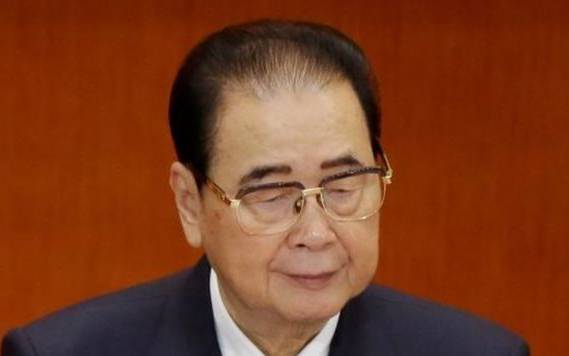Li Peng- Hardline Chinese leader dies aged 90

Former Chinese Premier Li Peng, reviled by rights activists and many in the Chinese capital as the “Butcher of Beijing” for his role in the 1989 Tiananmen Square crackdown, has died, state media reported on Tuesday.
Li, who was 90, died on Monday night in Beijing, Xinhua said, more than three decades after his government authorized a bloody suppression of student-led pro-democracy protests in the early hours of June 4, 1989.
Xinhua said Li died following unsuccessful treatment for an illness, which it did not specify.
His death comes as China grapples with a widening political crisis in Hong Kong, where violent protests in the Chinese-controlled territory over an extradition bill have presented Beijing with the most serious popular challenge to its governance since the Tiananmen demonstrations.
Along with then-paramount leader Deng Xiaoping, Li was seen as an unapologetic hard-liner responsible for ordering the assault that crushed weeks of demonstrations by protesters in central Beijing.
His declaration of martial law over parts of Beijing on national television in the weeks before tanks and troops swept the square of protesters made him one of the most prominent faces of a crackdown that continues to color global perception of China’s Communist Party leadership.
Born in Sichuan province in China’s southwest, Li was orphaned as a toddler when his father, Li Shuoxun, an early Communist Party revolutionary, was killed by Nationalist forces.
He was raised among China’s Communist Party revolutionaries, the ward of Premier Zhou Enlai, who, along with Mao Zedong, was among the leaders who founded the People’s Republic in 1949. Li would become one of China’s most powerful so-called princelings, or members of elite families that continue to wield influence.
Two of Li’s three children - his eldest son Li Xiaopeng and daughter Li Xiaolin - went to work as executives in the power industry, and became influential in leadership circles. Li Xiaopeng, whose name means “Little Peng”, was appointed transport minister in 2016.
Zhou sent Li at age 12 to the Communist heartland base of Yan’an to study, and Li formally joined the party at 17. As the Communists drew close to victory in their civil war against the Nationalists, Li went to the Soviet Union to study.
A hydropower engineer by training, Li rose through the ranks as an energy official. He was a champion of the Three Gorges Dam project on the Yangtze river, a massive feat of engineering that became part of his legacy.
In 1994, as premier, he oversaw groundbreaking on the dam, waxing poetic in a song he included in his diaries published in 2003: “The huge wheel whirls, its power boundless. The achievement is now, and the benefits for a thousand years.”
But the 185-meter (607 feet) dam also has been one of China’s most expensive and controversial projects, submerging villages, displacing millions and disrupting ecosystems.
The dam project became a lightning rod for what critics saw as China’s growth-at-all-costs economic model, coming in billions of dollars over budget, and was later linked to embezzlement and nepotism scandals, according to the national audit office.